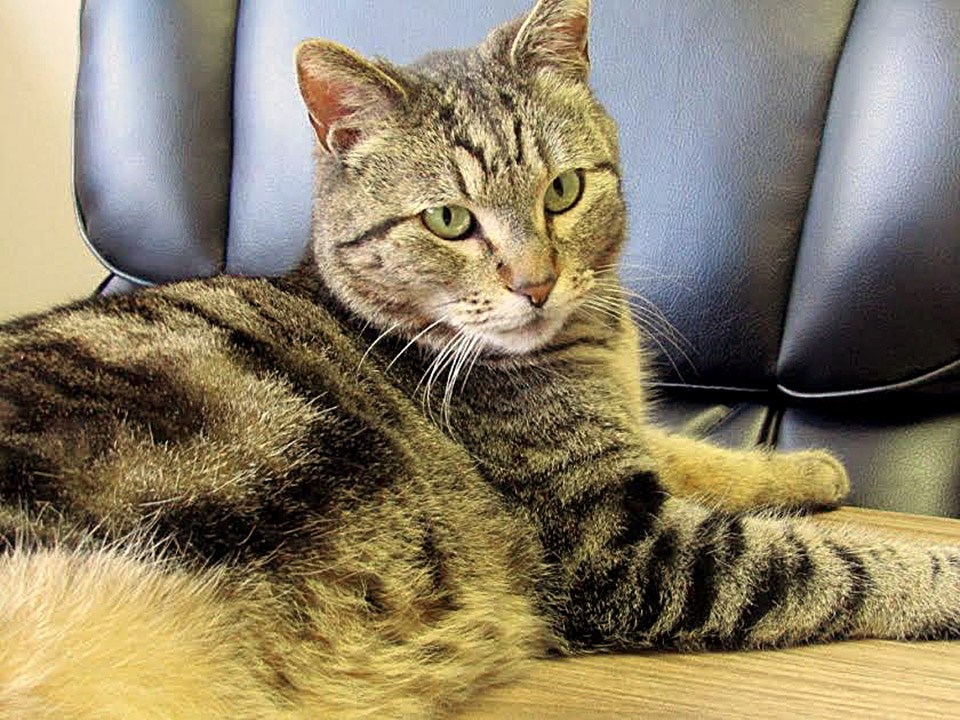Stray cats are brought to the Guelph Humane Society almost every day so there was nothing curious about a certain brown tabby that was discovered roaming around Morriston earlier in March and delivered to the animal shelter.
But it turns out this cat was not a stray, but instead had gone astray. Really, really astray.
When humane society staff scanned the cat, which is their routine practice with strays, not only did BooBoo have a microchip, the data indicated she was from Watsonville, California. And when the owner was contacted, it turns out this cat had been missing since 2013.
Ashley Aleman said in a phone interview from California that she received a message her cat had been found but it was the next day before she knew whether BooBoo was alive or injured or ill.
“Once I knew she was OK, it was wonderful news,” she said. “There were tears. I’m definitely looking forward to getting her back.”
Aleman is flying to Buffalo on Friday and an animal protection officer will drive BooBoo across the border to the airport and hand her over there. Then Aleman and her cat will fly back to California.
It’s a lot of bother and expense for a cat, but BooBoo is worth it, Aleman said.
When she was 15, she found BooBoo in the street as a kitten and kept her hidden in her house for about a week. But the family dog discovered her and in a play wrestle, BooBoo hit her head and was knocked unconscious. She couldn’t move and was bleeding out. Aleman though she was going to die, but BooBoo made it through the surgery.
Aleman said BooBoo had a couple of other close calls in the years they were together, “so I don’t know how many of her nine lives she’s used up since she’s been gone. I’m happy to get her back. But I think I’ll put a camera on her.”
BooBoo is a very social cat and was in good health when she came to the
Stolz said she can only imagine how the cat made the 4,299-km journey to Guelph.
“My first thought was that the owner had moved to Canada but that was not the case,” Stolz said. “Then I thought maybe the cat was found in California and that family moved. But she could have got into a transport vehicle. The owner said BooBoo was known for going into other people’s cars.”
BooBoo didn’t shed any light on her adventures on Wednesday and seemed happy to be the centre of attention at the shelter, batting a cat toy across a desk and taking a swipe or two at a dangling camera lens cap.
“This is exciting for us,” said Adrienne McBride, executive director of the Guelph Humane Society. “All we ever want is for our animals to return to their homes.”
Stolz said this story underscores the importance of having your dog or cat microchipped, and of having a stray animal scanned for a chip before claiming it as your own. Most surrendered animals haven’t travelled as far as BooBoo, but that doesn’t make reunions less sweet.
“If BooBoo didn’t have a chip, she wouldn’t be going home,” Stolz said. “The microchip made this possible.”
McBride said the Guelph shelter has a return-to-owner rate of 12 or 13 per cent for cats, which is better than the national average of nine per cent. The return rate for dogs is closer to 80 per cent, mainly because more dogs than cats are chipped, more dogs also wear ID tags, and people generally report a lost dog – or a found one -- sooner than a lost cat.
As important as microchipping is keeping your contact information up-to-date.
In BooBoo’s case, the phone number in the database was still current and the owner was contacted. But often people get a new phone or move away and don’t think about updating the microchip information. In those cases it’s harder to locate the owner.
